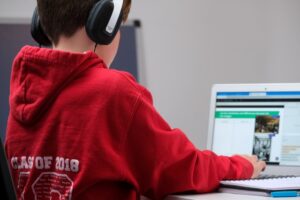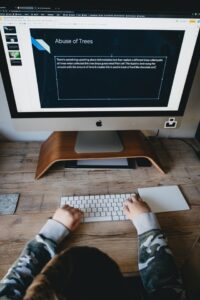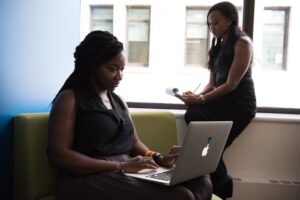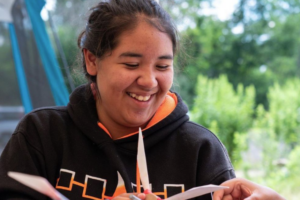Author's posts
Aug 15
“Coach me once per week” – Gallup (Circle Forum podcast August 17/21)
In a recent Gallup article, Jim Clifton writes that based on over 100 million employee interviews, the most engaged teams find the difference is “just the manager.” In school terms, we talk about how principals as managers can make a difference by being a restorative coach. It takes an intentional casual approach to conversations, connections …
Aug 15
BIPOC students don’t receive informal mentoring at school – podcast August 24
The problem presented in the Education Week article (see link below) is that white teachers don’t set up informal mentoring with black or Latino students. BIPOC students are missing out on trusted caring adult relationships. “It isn’t that you have to have all the answers. It was the fact that they (students) trusted that they …
Aug 15
Marginalized students’ attendance rates dropping in the pandemic – Season 1 Final Podcast August 31
BIPOC students are absent from school at higher rates than white students. As one high school student recounted “I feel like a ghost at school. I don’t even know if the teacher knows my name.” (Shelley) According to Attendance Works (see link below), “it requires nurturing feelings of belonging to school in the spring for …
Jan 28
Students with special education needs require coaching on strategies to keep them motivated and showing up for class in remote learning
“Guiding Special Education Students to Stay on Track for Success in Hybrid Classrooms”
Jan 28
The Efficacy of Virtual Instruction in K12 Education: A Review of the Literature, Georgia State U
“given the current public health crisis, schools may have little choice in providing
some or all instruction remotely. Thus, a major concern is how to provide the best remote instruction
possible under the current circumstances. Unfortunately, existing research provides litle reliable evidence
on which online learning practices are most effective, and the few existing causal studies yield inconsistent
results. Similarly, there is a lack of consistent evidence on the relationship between teacher experience
and effectiveness in an online learning environment.”
Jan 28
Remote learning is here to stay: RAND report key US findings
“About two in ten districts have already adopted, plan to adopt, or are considering adopting virtual school as part of their district portfolio after the end of the COVID-19 pandemic. District leaders cited reasons related to student and parent demand for continuing various forms of online instruction in future years.”
Jan 25
Survey: Students Want More Opportunities to Connect With Teachers During the Pandemic: Education Week
“the survey also found that Black students, in particular, were more likely to have experienced economic hardships as a result of the pandemic: 37 percent of Black students said that at least one of the adults in their household had lost their job due to the coronavirus, compared to 27 percent of Latino students, 23 percent of white students, and 16 percent of Asian American and Pacific Islander students.”
Jan 25
Tracking attendance as pandemic stretches presents challenges for school districts
“the nonprofit Center for Reinventing Public Education found that little more than 1 in 4 districts required taking attendance at all once schools moved to remote learning during the first wave of pandemic quarantines. But there’s wide variation in how districts are asked to monitor student attendance, and experts argue existing systems intended to flag students who need support may fall short because of it.”
Jan 25
62,596 Years of Instruction Are Lost Annually, and It Has Nothing to Do With COVID
The losses are quantified in often horrifying detail by Lost Opportunities, a report recently released by The Center for Civil Rights Remedies at the Civil Rights Project at UCLA and the Learning Policy Institute. NEPC Fellow Dan Losen of the UCLA Civil Rights Project wrote the report with Paul Martinez, also of the Civil Rights Project.”
Jan 25
How an Indigenous land-based learning approach to STEM could help students across Canada: Toronto Star
““Indigenous people have these knowledges, they express them in different ways, though,” said Dokis, who is a member of Dokis Anishinabek Nation. “It’s passed on through story and observation. Whereas in western mathematics or sciences, those knowledges are expressed through numerical formulas.”








